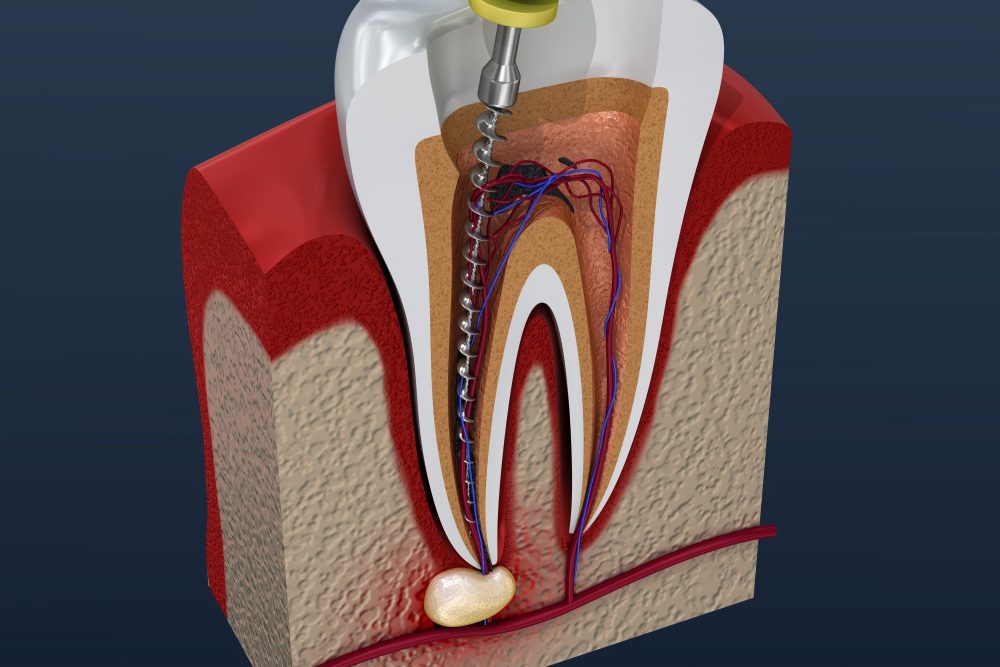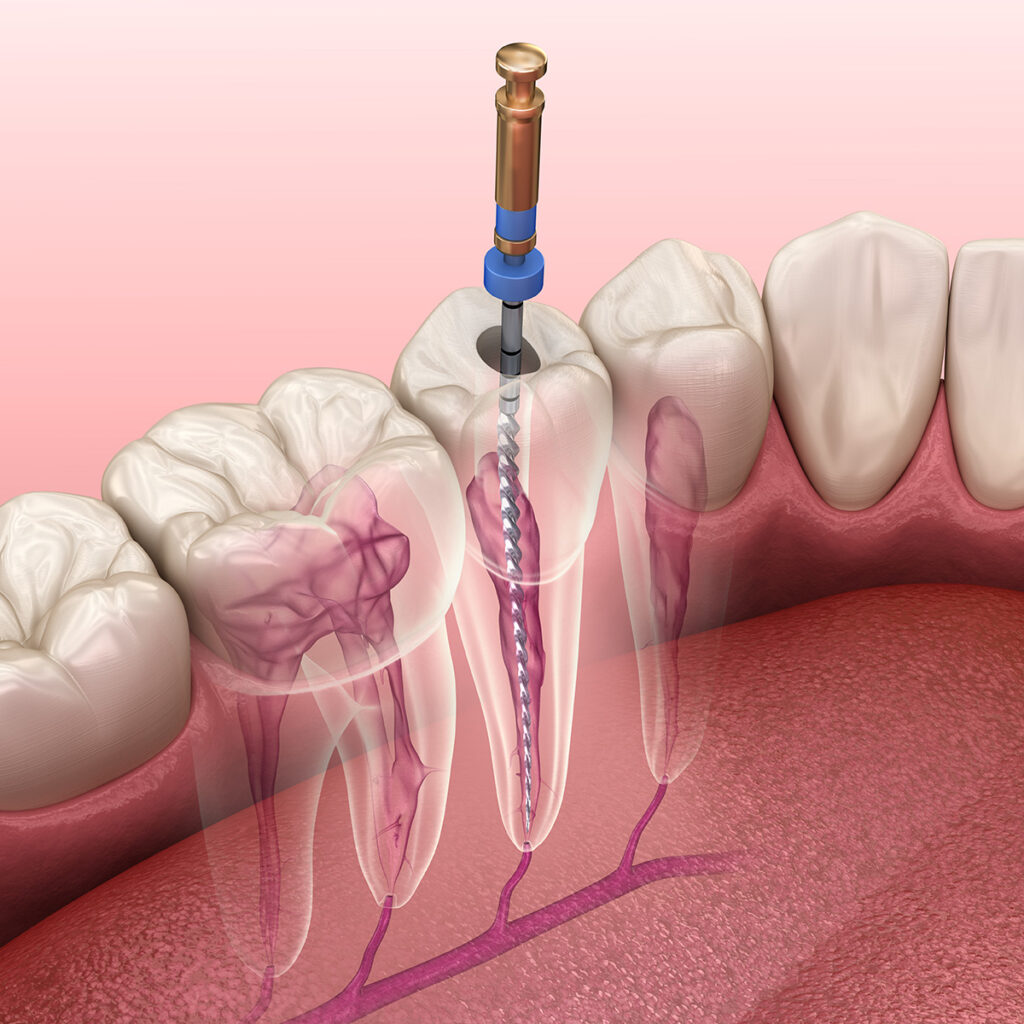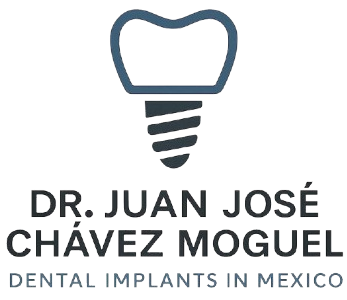Root Canal Therapy (Endodontic Treatment)
Root canal therapy (endodontic treatment) is one of the most common and effective procedures in restorative dentistry. It is designed to preserve a natural tooth that would otherwise require extraction due to deep decay, trauma, or infection of the pulp tissue.
What Is Dental Pulp?
The pulp is the soft tissue found at the center of the tooth. It contains nerves, blood vessels, and connective tissue, extending from the crown down through the root canals.
When the pulp becomes inflamed or infected—due to deep decay, cracks, trauma, or repeated dental procedures—it can cause severe pain, abscesses, or even tooth loss if left untreated.
Goals of Root Canal Treatment
- Remove infection and necrotic (dead) tissue.
- Prevent bacteria from spreading to surrounding bone and tissues.
- Preserve the natural tooth in full function within the dental arch.

When Is Root Canal Therapy Necessary?
The procedure is recommended when the dental pulp becomes:
Irreversibly inflamed or infected (pulpitis).
Necrotic due to trauma, fracture, or decay.
A source of persistent pain, abscess, or swelling.
Neglecting these symptoms may lead to:
Spread of infection to surrounding tissues.
Formation of a dental or periapical abscess.
Bone loss around the root tip.
Systemic infection in severe cases.
Step-by-Step Overview of the Procedure
- Diagnosis & X-rays
The dentist performs a clinical exam and takes radiographs to assess the extent of damage and confirm pulpal involvement. - Tooth Isolation & Access Opening
A rubber dam is placed to isolate the tooth and maintain a sterile field. An opening is then made to access the pulp chamber. - Pulp Removal
All infected or damaged pulp tissue is removed from the root canals. - Cleaning & Disinfection
The canals are shaped with special instruments and flushed with antibacterial solutions to eliminate bacteria and debris. - Canal Filling (Obturation)
Once disinfected, the canals are sealed with a biocompatible material (commonly gutta-percha) to prevent future infection. - Final Restoration
A crown is usually recommended to restore the tooth’s strength and function, as it may become brittle after treatment.
Indications for a Root Canal
- Persistent or severe tooth pain when chewing or applying pressure.
- Prolonged sensitivity to hot or cold.
- Tooth discoloration.
- Swelling or tenderness in the gums (abscess formation).
- A cracked or broken tooth exposing the pulp.
Success Rate and Prognosis
Root canal therapy has a success rate of over 90% when performed correctly and followed by proper restoration (typically a crown). Long-term success depends on maintaining good oral hygiene and attending regular dental checkups.
| Aspect | Root Canal | Extraction |
| Preserves natural tooth | ✅ | ❌ |
| Maintains bite alignment | ✅ | ❌ (can cause shifting) |
| Time | 1–2 appointments | Faster, but replacement takes longer |
| Cost | Moderate | Lower upfront, higher with implant/bridge |
| Esthetics | Natural tooth remains | Often requires prosthesis |
| Functionality | Fully restored | May be reduced or lost |
| Healing time | Short | Longer if replaced with implant |
What to Expect Before, During, and After
Before the Procedure
- A thorough evaluation using X-rays and pulp vitality tests.
- Explanation of treatment plan and possible outcomes.
- Local anesthesia is administered for comfort.
During the Procedure
- The treatment can take 60 to 90 minutes, depending on the number of canals.
- Some molars may require multiple visits due to their complex root anatomy.
- Modern techniques like rotary instrumentation and electronic apex locators improve accuracy and efficiency.
After the Procedure
- Mild discomfort or tenderness may occur for a few days—manageable with over-the-counter analgesics (e.g., ibuprofen).
- Antibiotics may be prescribed if there was an active infection.
- A permanent crown is typically placed 1–2 weeks after treatment for long-term protection.
Materials Used in Root Canal Therapy
- Gutta-percha: A rubber-like, biocompatible material used to fill the root canals.
- Sealers: Resins or cements used alongside gutta-percha to seal microgaps.
- Temporary fillings: Placed between appointments before the final restoration.
- Final crowns: Usually porcelain, zirconia, or metal-ceramic for durability and aesthetics.
Potential Complications (Rare)
While root canal therapy is highly successful, complications may occur:
- Missed canals (common in molars with complex anatomy).
- Instrument breakage inside the canal.
- Incomplete removal of infection.
- Post-treatment discomfort (flare-up).
- Root fracture due to untreated occlusal forces.
These risks can be minimized with proper technique and post-treatment care.

How Long Does a Root Canal Last?
With a proper crown and good oral hygiene, a root canal-treated tooth can last 10–20 years or even a lifetime. Longevity depends on:
- Prompt restoration with a crown.
- Absence of re-infection.
- Regular dental check-ups.
- Patient’s overall oral hygiene habits.
Why Choose Root Canal Over Extraction and Implant?
- Less invasive: No surgery or bone grafting.
- Cost-effective: Lower than implants in the short to medium term.
- Immediate function: You keep chewing with your natural tooth.
- Preserves bone: Prevents jawbone resorption.
FAQs for Patients
Q: Is the procedure painful?
A: With local anesthesia, most patients report little to no pain during the procedure. In fact, many feel relief after the infected tissue is removed.
Q: Can I drive after a root canal?
A: Yes, in most cases. As the procedure is done under local anesthesia, patients are generally able to drive themselves home unless sedation was used.
Q: Will I need a crown afterward?
A: In most cases, yes—especially for molars or teeth under high chewing pressure. The crown protects the tooth and prevents fracture.
Post-Treatment Recommendations
- Avoid chewing hard foods on the treated tooth until the final restoration is placed.
- Do not skip follow-up appointments with your dentist.
- Maintain excellent oral hygiene with brushing, flossing, and professional cleanings.
Let’s Bring Your Smile and Joy Back!
Your smile transformation starts with a conversation.
Whether you have questions or you’re ready to
book, we’re here to guide you every step of the
way, with care you can trust.
📞 Call us now: (813) 586-0486
